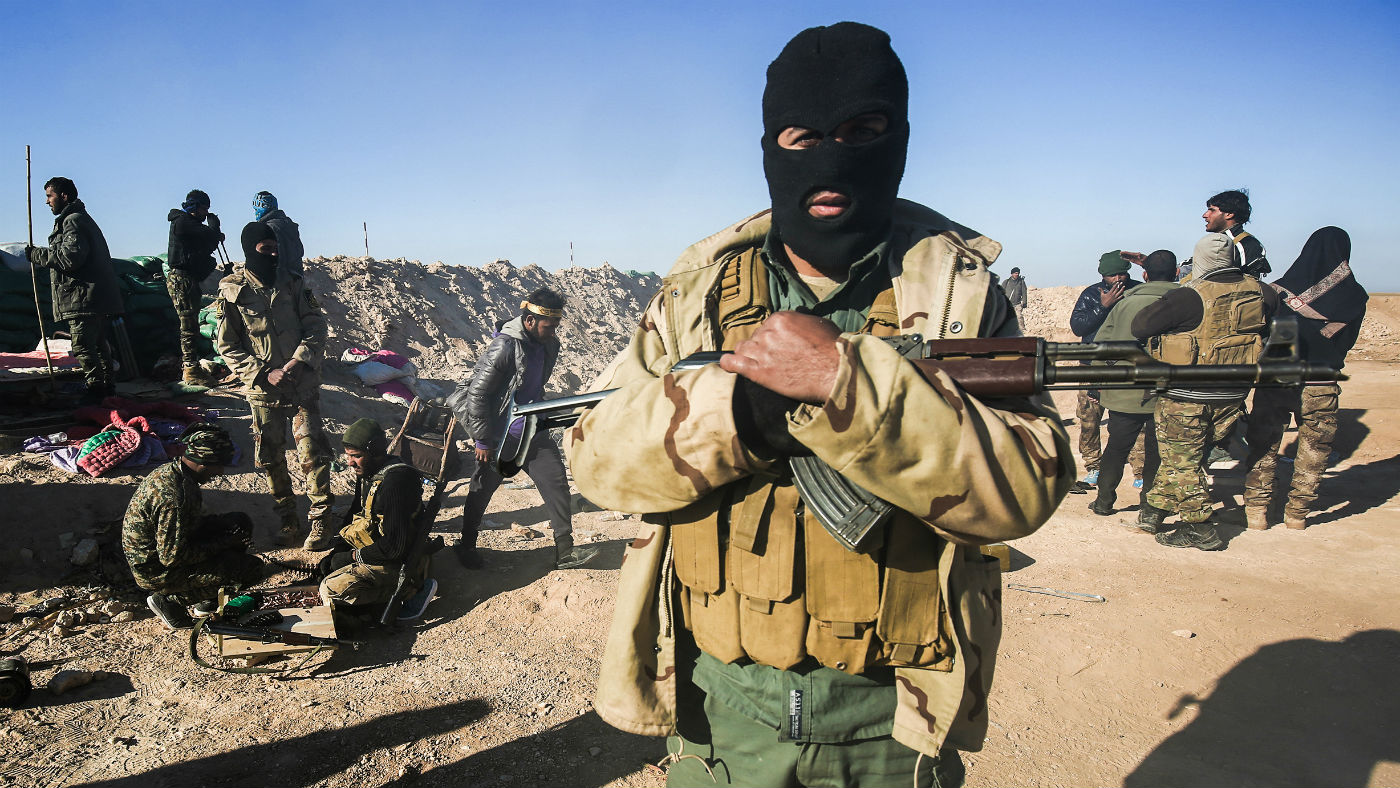Where does Islamic State get its weapons?
Belgian researchers say most of terror group’s arms come from China, Russia or Eastern Europe

A free daily email with the biggest news stories of the day – and the best features from TheWeek.com
You are now subscribed
Your newsletter sign-up was successful
The vast majority of weapons used by Islamic State fighters can be traced back to China, Russia or Eastern Europe, new research suggests.
Between July 2014 and November this year, a team of investigators working for Belgium-based Conflict Armament Research were deployed to frontline positions in both Syria and Iraq. Embedded with local forces fighting Isis, predominantly Iraqi government troops and Kurdish forces in northern Syria, researchers analysed the provenance of more than 40,000 items captured or left behind by retreating Islamist fighters.
They found that 90% of recovered weapons, ammunition and chemicals used in improvised explosive devices (IEDs), originated in either China, Russia or Eastern Europe.
The Week
Escape your echo chamber. Get the facts behind the news, plus analysis from multiple perspectives.

Sign up for The Week's Free Newsletters
From our morning news briefing to a weekly Good News Newsletter, get the best of The Week delivered directly to your inbox.
From our morning news briefing to a weekly Good News Newsletter, get the best of The Week delivered directly to your inbox.
Most of the weapons and ammunition held by Isis had been delivered to the region since the beginning of the Syrian civil war in 2011 and were intended to supply either Syrian opposition forces or government troops.
Though most of these came from Russia, which has supported and armed President Bashar al-Assad, some of the weapons that were eventually diverted to Isis were originally supplied by the US and Saudi Arabia. There were also instances in which Isis weapons had been moved to Syria from stockpiles in other conflict regions such as Libya.
“Time and again, states that seek to accomplish short-term political objectives supply weapons to groups over whom they exert little to no control,” said James Bevan, the executive director of Conflict Armament Research. “These weapons often gravitate to the most organised and effective rebel and insurgent forces.”
Isis created a surprisingly efficient and robust weapons supply chain, even though it was effectively cut off from the rest of the world and under attack on all sides.
A free daily email with the biggest news stories of the day – and the best features from TheWeek.com
“And with dangerous and chaotic conflicts continuing throughout various locations in the Middle East and Africa, the supply chain of weapons is likely to remain an important focus in the years ahead,” says CNN.
The report's authors concluded that “the main drivers of illicit weapons supplies are not the companies and states that manufacture weapons, but the governments and entities that acquire weapons lawfully and subsequently divert them to unauthorised users.”
US to provide evidence Iran is arming Houthi rebels
The Trump administration has released evidence that Iran has been arming Houthi rebels in Yemen, and that it supplied the missiles recently fired into Saudi Arabia.
US Ambassador to the UN Nikki Haley presented the information to reporters yesterday. It included analysis of missile components recovered by Yemeni forces which could only have originated from Iran, an Iranian-made drone recovered by fighters allied with the Saudi-led coalition, an Iranian-made anti-tank weapon and an Iranian-made boat intercepted by UAE forces.
The US says Iran is in violation of multiple UN Security Council resolutions, as Donald Trump seeks to ratchet up pressure on Tehran.
Both the US and UK have significantly ramped-up military assistance to Saudi Arabia over the past two years to help with their proxy war in Yemen, and have themselves been accused of multiple international human rights violations.